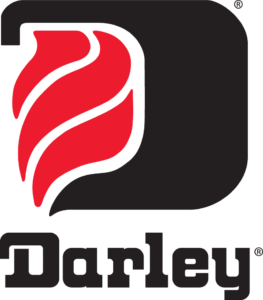
Leigh Ann Rodgers is the CEO and Founder of Better Teams, and is driven to positively impact corporate culture and cultivate happy, high-performing teams. She is also the host of Leading Better Teams podcast. In this episode, Leigh Ann shares thoughts on accountability, bonding/connection, and why virtual teams require extra work to build connections. Listen in for how to build strong virtual connections!
Key Takeaways
[1:58] Leigh Ann volunteers three days a week at a local animal sanctuary for farm animals. There are pigs, horses, donkeys, goats, and cats. It’s a beautiful little farm tucked into a forest. Leigh Ann feeds them and puts the hay out. It’s a peaceful place. Leigh Ann does the afternoon shift. The early morning shift scoops the poop, so Leigh Ann is happy to go in the afternoon.
[4:06] If members of a team are not being accountable to each other, the first thing to find out is why they are not. Leigh Ann says most of the time there is fear. It’s a risky thing to hold a peer accountable. It may lead to them not liking you, retaliation, or conflict.
[4:57] How do we create a culture and create trust where people want to hold each other accountable and want to be held accountable? It would be a culture where team members don’t see accountability as a threat but as a way of teaming together to help everyone be the best that they can be.
[6:04] One person can influence a team to a degree, depending on their status within the team.
[7:17] The leader establishes the culture. The leader can tell the team that it is expected for them to have difficult conversations with each other instead of coming to the leader. It starts with the leader setting the tone and the expectation for open, candid conversation, with good intention, to help each other be their best. That requires real feedback. The leader also needs to reward that behavior.
[9:55] If team members are unwilling to hold each other accountable, Leigh Ann loves the ADKAR model for changing behavior. Leigh Ann focuses on the first three aspects: Is the person Aware of their behavior? Do they Desire to change? Do they Know how to change? That’s where Leigh Ann starts to figure out why a person is not willing to engage in difficult conversations.
[11:50] One of the principles in Leigh Ann’s Better Teams training is Readiness. The first element of Readiness is having the right equipment, tools, and resources. If you don’t have those, advocate for yourself. The second element is competence and skill sets. Advocate for the competencies you need. It may involve getting a mentor. The third element is being adaptive, flexible, and agile. Can you pivot?
[12:59] Leigh Ann relates being adaptive to stress levels. People are fairly adaptive but when stress levels get high, we begin to get less adaptive and flexible. When there’s a lot of uncertainty, we start to crave certainty, which makes any new change feel bigger than it even may be. Recognize when your stress levels are high and advocate for ways to increase certainty so you can be flexible.
[14:18] Instead of advocating for the organization to provide something for you, it is better for you to provide the tools, training, skills, and more to better yourself for the job you have or future roles. Advocating for yourself may become a barrier to doing something for yourself that is well within your capability.
[15:09] Leigh Ann clarifies the difference between you managing your self-improvement and advocating for yourself to have the company provide an important solution that will benefit the company while benefiting you. What you can do without guidance or leadership, do independently.
[16:38] Jan notes that past guest Kim Cameron, spoke a lot about abundance versus scarcity. As we come out of a pandemic, we hear more from our guests about abundance than scarcity. Maybe people are more open-minded than they were. Jan invites you, the listener, to connect on social media about trends you are seeing. And Jan is proposing a prize if somebody listens to all past episodes of the show!
[18:11] Jan cites an HBR 1998 article on trust in the virtual team. Trust in virtual teams has been a topic for a while.
[18:34] Leigh Ann says some teams are getting human connection right, and some are not doing as well. People need to feel bonded to the people they are working with. Many people miss being in the office with other people. It takes so much more effort to build a meaningful connection on a group call. When you disconnect from the call, you disconnect from the people.
[19:56] Before the podcast started recording, Jan, Jim, and Leigh Ann were connected, talking about themselves. They were connecting and building rapport before starting the podcast. When meeting virtually, ask about each other.
[21:30] Some individuals and teams want deeper connections and some do not. It has to be managed case by case. Leigh Ann is reading about oxytocin in the book Habits of a Happy Brain. Oxytocin makes us feel connected and bonded. It is released when you come together and start to feel that you know who people are a little bit more and you feel safe with each other.
[22:43] When teams get together and do some sort of meaningful team exercise where they’re really getting to know each other in a safe way and as they want to, it creates that sense of bonding that may not be there if you’re just coming together running down a spreadsheet. We need to create spaces for teams to actually share what they want to about themselves and create that sense of connection.
[23:13] Leigh Ann suggests building, even virtually, times for teams to come together with a little structure for teams to share and learn about each other. A simple example is to ask team members to bring with them an object that symbolizes something that they value highly.
[23:50] Leigh Ann remembers someone bringing in a medal from running in a triathlon, and how running was part of her health journey. Another person brought in something that symbolized a medical challenge they had and a conversation that helped people on the team understand the person better. The team suddenly saw each other in a new dimension which made them more human to each other.
[24:51] Another exercise is a DiSC® communication workshop. What are the different ways in which we like to communicate? Are you direct? Do you like to ask questions?
[25:19] Doing some really meaningful team exercises like this allows people to get to know each other. Not necessarily sharing all their deep, dark family secrets, but it’s a way to learn about each other and what makes people tick, and create that sense of bonding and closeness we don’t get from typical business meetings.
[26:18] You can get people together for celebrations. We tend to celebrate success and meeting goals. We celebrate outcomes. Dr. Carol Dweck focuses on growth mindset. How do we celebrate the effort, even if we fall short of the goal? We should celebrate growth, effort, and learning in addition to outcomes. It’s also important to celebrate individual contributions and specialties each person brings.
[29:04] On the farm where Leigh Ann volunteers, each of the 25 volunteers brings something unique. One volunteer loves to paint. She painted sayings all over the farm and created the farm calendar. One volunteer is meticulous with order and structure. It’s important to celebrate the unique contributions of each person on your team. That makes them feel special and increases their serotonin, by the way.
[30:32] Leigh Ann tells how she beat the doldrums. Although she loves what she does, she noticed last year she was getting “the blahs.” She had to do some soul-searching to figure it out. She had stopped learning and growing and needed some new things to play into her strengths. She did a lot of learning and coaching with people, reading, and writing that helped her energize again. She got curious!
[32:40] Jan and Jim noticed that at the beginning of the pandemic, leaders were energized by the crisis. After 18 months, the same leaders were fired. They couldn’t react anymore, they had to step back and think. They had to be proactive. We’re still in that stage, where people are planning and budgeting and projecting what will happen. Jan directs people to what they value.
[33:33] Leigh Ann often asks people to ask themselves “What do you want?” and “What do you need?” That’s the beginning to find out how you get to that.
[34:23] Leigh Ann’s listener challenge: Put pen to paper, think about, and first ask yourself, what do you want and what do you need? If you’re not sure, grab a coach to help you think that through. Do some self-reflection and figure it out. Second, ask how you get out of your way. Third, ask how you prioritize and plan to get there. Leigh Ann has sessions starting in January that can help you through this.
[36:13] Closing quote: Remember, “Individual commitment to a group effort — that is what makes a team work, a company work, a society work, a civilization work.” — Vince Lombardi
The Leadership Podcast is sponsored by W.S. Darley & Company.
Founded in 1908, Darley remains a family owned and operated business, providing the highest quality equipment solutions to our country’s warfighters and firefighters.
Learn more at darley.com and darleydefense.com
Quotable Quotes
“How do we create a culture and create trust where people want to hold each other accountable and want to be held accountable? And they don’t see it as a threat. They see it as a way of teaming together to help everyone be the best… Share on X “In general, people are fairly adaptive but when stress levels get really high, we begin to get less adaptive and flexible. When there’s a lot of uncertainty, we start to crave certainty, which makes any new change feel bigger than… Share on X “We’ve got to figure out ways to create spaces for teams to actually share what they want to about themselves and create that sense of connection and bonding and I think we’ve got to build that in, even more than just, ‘How are you… Share on X “Doing some really meaningful team exercises … allows people to get to know each other. And not necessarily for sharing all their deep, dark family secrets, but it’s a way to learn about each other and what makes people tick, and… Share on X “Take time to put pen to paper and think about what you want and what you need. … And if you’re really not sure, grab a coach. A coach can help you think that through, as well, but do some self-reflection and figure that out.” —… Share on XResources Mentioned
- Sponsored by: Darley.com
- Rafti Advisors. LLC
- Self-Reliant Leadership. LLC
- Leigh Ann Rodgers
- Better Teams
- Team Consultant Academy
- Leading Better Teams podcast
- Change management (including ADKAR)
- Kim Cameron
- Organization — Trust in Virtual Teams, HBR
- Habits of a Happy Brain: Retrain Your Brain to Boost Your Serotonin, Dopamine, Oxytocin, & Endorphin Levels, by Loretta Graziano Breuning
- DiSC®
- Carol Dweck, Ph.D.


Recent Comments